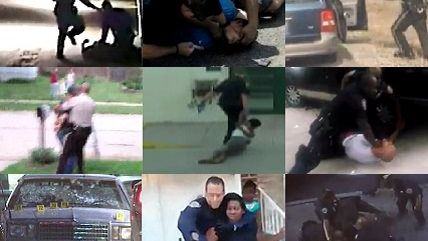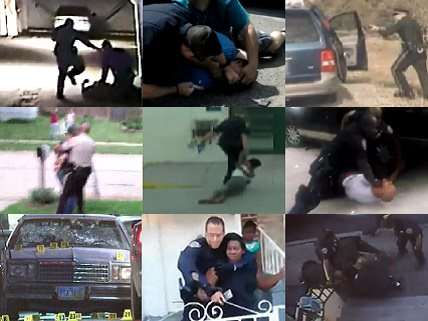How Police Unions Contribute to the Police Violence Problem
As explained in a New York Times op-ed.


Saturday's New York Times op-ed page include a column by Jonathan Smith, who served as head of the Department of Justice (DOJ) Civil Rights Division's special litigation team from 2010 until this year, when the DOJ investigated more than 20 police departments. Smith describes how police unions have contributed to the problem of police brutality and lack of accountability. He provides some historical context, explaining how police unions responded to Lyndon Johnson's 1967 Kerner Commission, which found many of the riots of the period were caused by broken police-community relations.
Following the report, police conduct was challenged by civil rights litigation, and a movement for civilian oversight was born. A series of decisions from the Supreme Court defined the constitutional right of protection from excessive force for citizens arrested by police.
The Fraternal Order of Police and other rank-and-file police groups adopted a defensive strategy toward this pressure. They lobbied state legislatures to enact law enforcement "bills of rights" that placed strict limits on accountability.
In big cities, where police unions have political clout, rigid union contracts also restricted the ability of police chiefs and civilian oversight bodies to tackle misconduct. As a result, an officer involved in a shooting often cannot be interviewed at the scene; internal affairs investigators have to wait days to get a statement.
Smith also writes about how cops are allowed to review body cam footage to "get the story straight" and how union contracts limit the kind of accountability and oversight police departments and local governments can impose on police.
Sometimes, however, blaming union contracts can be an excuse for inaction, Smith argues:
Union-negotiated rules are only one barrier to change — and police chiefs sometimes cite union contracts unfairly, as an excuse for inaction. But state laws and collective bargaining agreements must be reformed. Disciplinary procedures should be less complex and rules that limit the effectiveness of civilian oversight must be eliminated. Transparency in police conduct must be the rule.
Reform is good for union members — in fact, the overreach of law enforcement bills of rights and some union contracts have harmed the very officers the contract rules are intended to protect. The obstacles to correcting police misconduct have not only undermined confidence in the police, especially among minorities, but have actually placed officers at greater risk by damaging relations between police departments and communities.
When convictions are a necessary prerequisite for substantive police discipline, such obstacles also put cops in danger by threatening their due process rights. That police unions produce rules that protect bad cops should not be a controversial point; the purpose of public unions is to create privileges of employment.
Read Smith's entire op-ed here.


Show Comments (41)